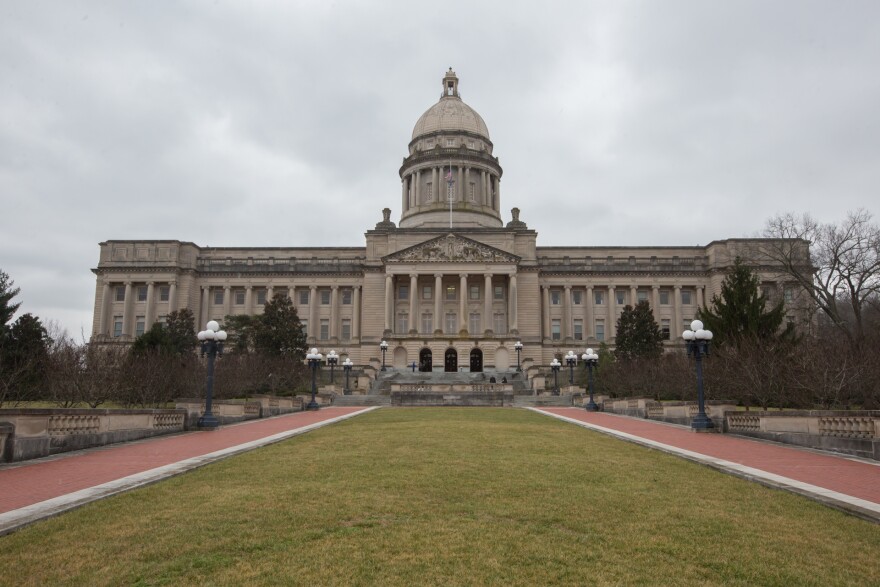A state legislative task force has approved a list of nine changes they hope to see to K-12 education funding in 2022. The group of lawmakers, district superintendents and other stakeholders are calling on the Kentucky General Assembly to permanently fund full-day kindergarten, switch from an attendance-based funding model to an enrollment-based one and develop plans to pay for districts’ transportation costs and school safety upgrades.
“This is kind of like nine things on your child's Christmas wish list,” Campbellsville Republican Sen. Max Wise said.
The General Assembly created the school funding task force in March of 2021. Members met six times over the last six months to review the state’s K-12 funding mechanisms and study possible changes.
In addition to increases in transportation and school safety funding, the task force members also want the legislature to research how other states have measured the cost of an “adequate” public education. The landmark Rose v. Council for Better Education decision in 1989 required the legislature to fully fund an adequate public education system. But many are questioning whether the funding mechanism created in the 1990s addresses the costs and challenges of the present.
“I think it's essential that we do the research to find out what we need to do—what it will cost to provide an adequate education where every child is given the opportunity to learn,” Louisville Rep. Tina Bojanowski, a Democrat and a teacher for Jefferson County Public Schools, said.
One of the biggest, and possibly most controversial, changes endorsed by the group would be moving away from an attendance-based funding formula. The current state funding formula gives schools an amount per student based on the district’s average daily attendance, rather than the average number of students enrolled. The formula is meant to incentivize districts to keep attendance up. Taylorsville Republican Rep. James Tipton says, instead, it penalizes districts with the neediest students.
“A lot of the school districts that have lower average daily attendance … they have students who are more economically disadvantaged … and those are the districts that need those funds more so,” he said.
The COVID-19 pandemic prompted lawmakers to rethink attendance-based funding, Tipton said, as districts have grappled with massive fluctuations in attendance due to illness and quarantines.
However, Lawrence County Schools Superintendent Robbie Fletcher warned that without increasing the overall funding going to K-12 education, switching models will create “winners and losers.”
“If we do not increase the education budget, then you're going to have the lower-attendance districts increase [in state funding], whereas maybe the higher-attendance districts will decrease,” he said.
Fletcher was appreciative of a recommendation that lawmakers explore developing a “School District Impact Statement” for education bills to inform lawmakers about potential costs of legislation to school districts.
“There’s a lot of times that we have unfunded mandates,” he said.
Wise, who chairs the senate education committee, said the recommendations will be presented to house and senate leadership for consideration during the 2022 legislative session, which begins in January.
The task force’s full nine recommendations are below:


